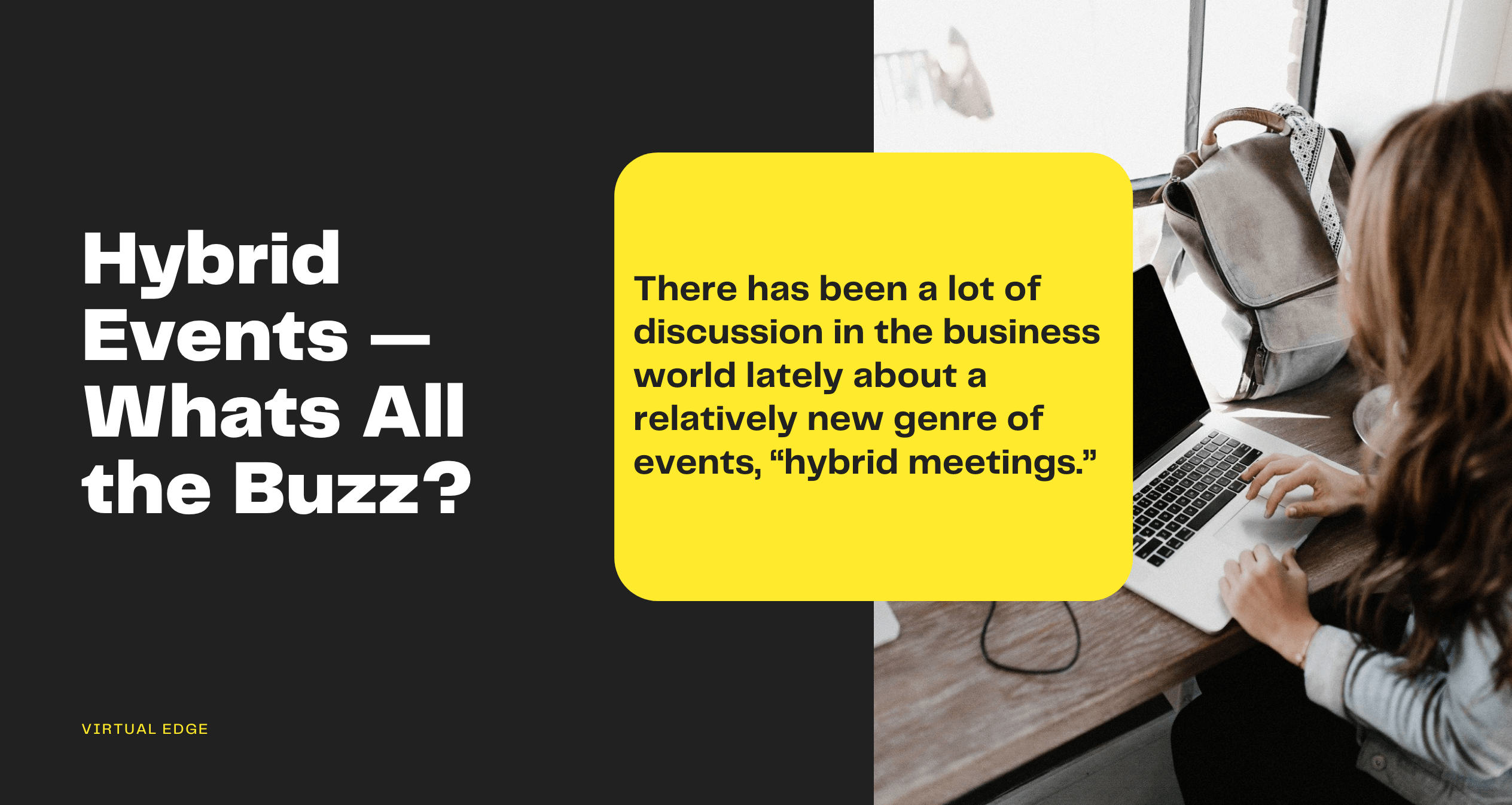There has been a lot of discussion in the business world lately about a relatively new genre of events, “hybrid meetings.”
Briefly, the term “Hybrid” refers to an event containing both “Live” and “virtual” components working together. In Wikipedia, the term “hybrid” is defined as “the combination of two or more different things, aimed at achieving a particular objective or goal.”
Over the past couple of months I have participated in several hybrid events, both as a virtual and live participant. From those experiences come the following observations:
- The social media tool that seems to do the best job of developing a sense of community is Twitter. At all the hybrid events I attended there has been a live twitter stream marked by a hashtag.
- The Twitter stream,used in conjunction with a live webcast, creates a strong connection between virtual and live attendees. Surprisingly,in this context it is difficult to discern between virtual and live attendees as the information exchange and interaction leads to a comparable awareness of the content.
- At all the hybrid events I attended I have made new “virtual-driven” connections with other like minded professionals leading to new relationships. This in and of itself is very rewarding.
- Adding a virtual component to a live event can significantly extend its reach.
- Engagement in Sessions — Using Twitter forces a person to fully engage themselves in an educational session motivating them to pay close attention to the content. The tweets I posted as an event attendee, along with those of my peers, enabled me to author two blog articles summarizing those events.
So what is truly the value of a “Hybrid” event? Well, the answer to that question is multi-faceted:
- For event sponsors and the hosting organization hybrid events clearly widen their exposure in the marketplace.
- Live webcasts create an opportunity to make new connections with folks that would otherwise be difficult to reach. By creating a registration process contact information is captured, which will provide potential ROI value to event sponsors and the organization itself.
- The sense of community created across organizations is heightened.
- In a tough economy many people can not afford to attend f2f events. A hybrid event makes it possible for virtual attendees to at least leverage the educational content at some level, and network with live attendees albeit a twitter feed. The ultimate result may be enhanced member/customer loyalty to the organization hosting the event.
Is there a potential financial benefit to creating a Hybrid event? That is a great question and one to address in another discussion.
